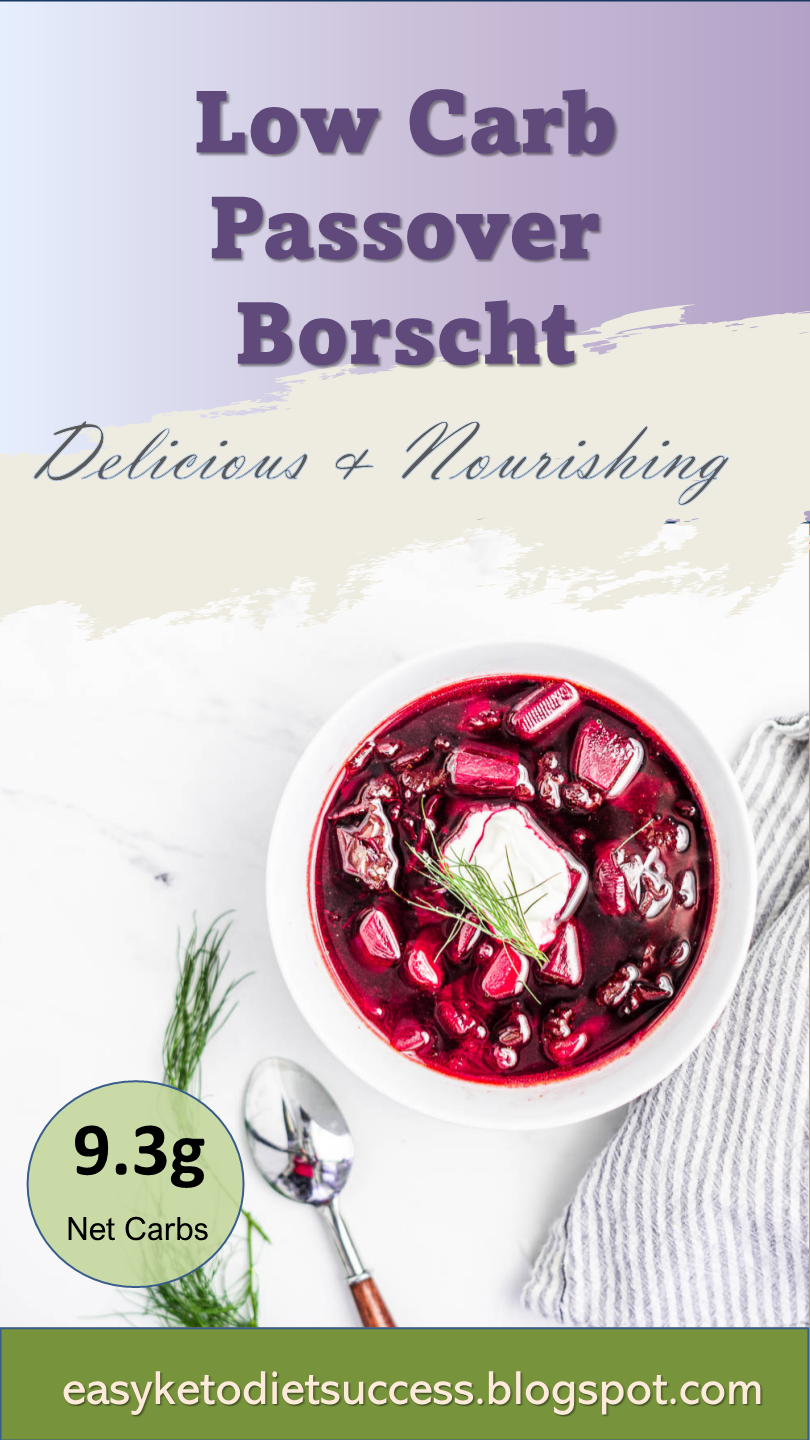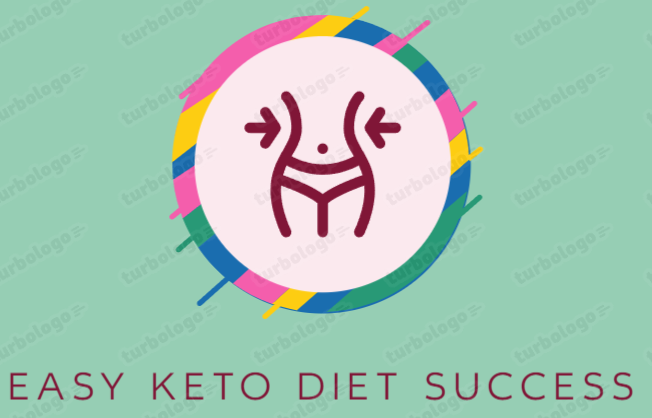Need recipes? Download our Free 21 Keto Recipe Book. Click Here

Once upon a time, I embarked on a quest to create the perfect recipe for Low Carb Passover Borscht. It was a journey filled with trial and error, but I was determined to get it right. I started by following a basic recipe, but it just didn’t taste quite right. So, I decided to experiment.
I added different vegetables, adjusted the seasonings, and even tried different cooking methods. Each time, I would gather my family around the dinner table and ask for their honest feedback. My husband Mark, my daughter Emily, and my son Ethan were always willing taste testers.
There were many failed attempts along the way. Some batches were too sour, while others lacked flavor. But I refused to give up. Finally, after many attempts, I struck gold.
The moment I got it right, I could see the joy on my family’s faces. The borscht was perfectly balanced, with just the right amount of tanginess and sweetness. The vegetables were tender, and the broth was rich and flavorful.
Not only did I achieve the taste I was aiming for, but the Low Carb Passover Borscht also provided numerous nutritional benefits. The combination of vegetables, like beets, carrots, and cabbage, provided vitamins and minerals essential for our health.
Now, whenever Passover comes around, my family eagerly looks forward to enjoying this delicious and healthy borscht. It has become a cherished tradition in our household, reminding us of the hard work and perseverance that went into perfecting the recipe.
Need recipes? Download our Free 21 Keto Recipe Book. Click Here
Origins of Low Carb Passover Borscht
Low Carb Passover Borscht has its origins in Eastern European Jewish cuisine, specifically among Ashkenazi Jews. Borscht itself is a traditional beet soup that has been enjoyed for centuries in countries like Ukraine, Poland, and Russia. Ashkenazi Jews adapted this dish to make it suitable for Passover, a holiday that restricts the consumption of leavened bread and grains.
Passover Borscht typically omits ingredients like flour or barley, which are commonly used in non-Passover versions. Instead, it focuses on the natural sweetness and vibrant color of beets, often combined with other root vegetables like carrots and potatoes. The result is a hearty and flavorful soup that has become a beloved part of Passover traditions.
Best Time to Enjoy Low Carb Passover Borscht
Low Carb Passover Borscht is best enjoyed during the spring season, specifically around the time of Passover. This is when fresh beets and other root vegetables are in abundance, making it easy to source high-quality ingredients. Additionally, Passover itself is a time for gathering with family and friends, making it the perfect occasion to savor this traditional dish.
Passover Borscht is often served as a starter or appetizer during the Passover Seder, a special meal that commemorates the Jewish exodus from Egypt. It can also be enjoyed throughout the holiday week as a comforting and nourishing meal.
Perfect Food Pairings with Low Carb Passover Borscht
Low Carb Passover Borscht pairs well with a variety of dishes and accompaniments. Here are some ideas to create a well-rounded meal:
- Serve it with a dollop of sour cream or plain Greek yogurt to add a creamy and tangy element.
- Pair it with matzo ball soup for a classic Passover combination.
- Enjoy it alongside a fresh salad with crisp greens, cucumbers, and tomatoes.
- Serve it with a side of smoked salmon or other fish for a protein-rich meal.
- Pair it with a crusty slice of low carb bread or matzo for a heartier option.
For those following a low carb or ketogenic diet, consider replacing the potatoes in the recipe with cauliflower or turnips to further reduce the carb content.
Tips and Tricks to Prepare Low Carb Passover Borscht
- Wear gloves while handling beets to prevent staining your hands.
- If you prefer a smoother texture, use an immersion blender or food processor to puree the soup.
- To enhance the flavor, consider adding a splash of vinegar or lemon juice to balance the sweetness of the beets.
- Feel free to customize the recipe by adding additional vegetables like cabbage or celery.
- If you’re short on time, use pre-cooked beets or canned beets for convenience.
Let’s Get Started!
Low Carb Passover Borscht is a delicious and nutritious dish that allows you to embrace the flavors of traditional Jewish cuisine while maintaining your low carb lifestyle. Don’t be afraid to get creative with your toppings and accompaniments to make it your own. So why wait? Grab your apron and start cooking this delightful Passover treat. Enjoy!
Ingredients
- Beets ()
- Carrots, raw ()
- White onion ()
- Olive oil ()
- Coarse Kosher Salt ()
- Beet greens, raw ()
- Bay leaf ()
- Vegetable broth, bouillon or consomme ()
- Sour cream ()
Instructions
- Using a cutting board and a knife, peel and dice the carrot and onions. Cutting them into ½” dice. Wash and peel the beets, including the greens, cutting the beet greens from the beets and reserving them for the soup. Cut the beets into ½” dice as well. Also, slice the beet greens into a thin julienne. Set aside. Heat a large saucepan over medium heat until hot. Add the olive oil and swirl to coat. Add the carrots, onions, and beets and cook for 3-5 minutes using a wooden spoon to stir the vegetables until they start to brown and become soft. Season with 1 tsp kosher salt.
- Add the broth as well as one bay leaf. The recipe above calls for crumbled bay leaf, but please use a whole bay leaf.
- Bring to a boil, and then bring it down to a simmer for 20 minutes or so until the vegetables are soft. Add in the beet greens and cook until wilted. Serve hot with a dollop of sour cream and fresh dill.
- Download our Free Keto Recipe Book for 21 Healthy, Quick and Easy to make Recipes

